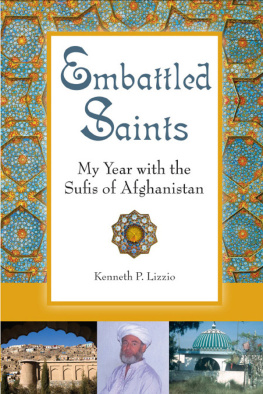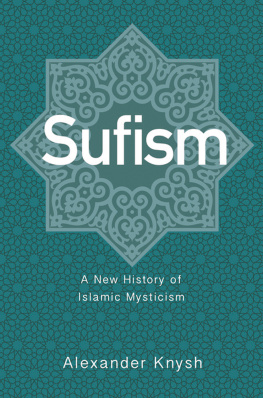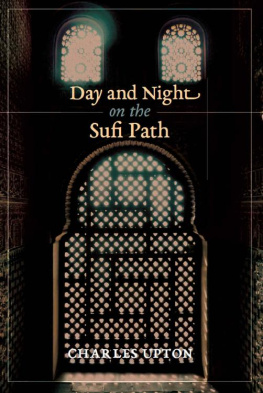THE SUFIS
Books by Idries Shah
Sufi Studies and Middle Eastern Literature
The Sufis
Caravan of Dreams
The Way of the Sufi
Tales of the Dervishes: Teaching-stories Over a
Thousand Years
Sufi Thought and Action
Traditional Psychology,
Teaching Encounters and Narratives
Thinkers of the East: Studies in Experientialism
Wisdom of the Idiots
The Dermis Probe
Learning How to Learn: Psychology and Spirituality in the Sufi Way
Knowing How to Know
The Magic Monastery: Analogical and Action Philosophy
Seeker After Truth
Observations
Evenings with Idries Shah
The Commanding Self
University Lectures
A Perfumed Scorpion (Institute for the Study of
Human Knowledge and California University)
Special Problems in the Study of Sufi Ideas
(Sussex University)
The Elephant in the Dark: Christianity,
Islam and the Sufis (Geneva University)
Neglected Aspects of Sufi Study: Beginning to Begin
(The New School for Social Research)
Letters and Lectures of Idries Shah
Current and Traditional Ideas
Reflections
The Book of the Book
A Veiled Gazelle: Seeing How to See
Special Illumination: The Sufi Use of Humour
The Mulla Nasrudin Corpus
The Pleasantries of the Incredible Mulla Nasrudin
The Subtleties of the Inimitable Mulla Nasrudin
The Exploits of the Incomparable Mulla Nasrudin
The World of Nasrudin
Travel and Exploration
Destination Mecca
Studies in Minority Beliefs
The Secret Lore of Magic
Oriental Magic
Selected Folktales and Their Background
World Tales
A Novel
Kara Kush
Sociological Works
Darkest England
The Natives Are Restless
The Englishmans Handbook
Translated by Idries Shah
The Hundred Tales of Wisdom (Aflakis Munaqib)
THE SUFIS
Idries Shah

Copyright The Estate of Idries Shah
The right of the Estate of Idries Shah to be identified
as the owner of this work has been asserted by them in accordance
with the Copyright, Designs and Patents Act 1988.
All rights reserved
Copyright throughout the world
No part of this publication may be reproduced or transmitted in any form or by any means, electronic, mechanical or photographic, by recording or any information storage or retrieval system or method now known or to be invented or adapted, without prior permission obtained in writing from the publisher, ISF Publishing, except by a reviewer quoting brief passages in a review written for inclusion in a journal, magazine, newspaper or broadcast.
Requests for permission to reprint, reproduce etc., to:
The Permissions Department
ISF Publishing
The Idries Shah Foundation
P. O. Box 71911
London NW2 9QA
United Kingdom
ISBN 978-1-78479-000-4
ePUB ISBN 978-1-78479-002-8
Mobi ISBN 978-1-78479-001-1
First Published 1964
Published in this edition 2015
In association with The Idries Shah Foundation

The Islanders. Sufi illustrative calligraphy, in the hand of Mohamed son of Shafiq, 1291, of the Mevlevi (Dancing) Dervishes. To view the illustration properly, turn the book on its side. The image of the ship and the people standing in it should become clearer.
Contents
The Situation
Humanity is asleep, concerned only with what is useless, living in a wrong world. Believing that one can excel this is only habit and usage, not religion. This religion is inept
Do not prattle before the People of the Path, rather consume yourself. You have an inverted knowledge and religion if you are upside down in relation to Reality.
Man is wrapping his net around himself. A lion (the man of the Way) bursts his cage asunder.
(The Sufi master Sanai of Afghanistan, teacher of Rumi, in The Walled Garden of Truth, written in 1131 A.D.)
Preface
The last thing that is intended in the writing of this book is that it should be considered inimical to scholasticism or to the academic method. Scholars of the East and the West have heroically consecrated their whole working lives to making available, by means of their own disciplines, Sufi literary and philosophical material to the world at large. In many cases they have faithfully recorded the Sufis own reiteration that the Way of the Sufis cannot be understood by means of the intellect or by ordinary book learning. That this fundamental has not prevented them from trying to bring Sufism within the compass of their own understanding is a tribute to their intellectual honesty and their faith in their own system of examination.
It would, however, be false to Sufism not to affirm that it cannot be appreciated beyond a certain point except within the real teaching situation, which requires the physical presence of a Sufi teacher. For the Sufi, it is no accident that the secret doctrine whose existence has for uncounted time been suspected and sought proves so elusive to the seeker. If, say, communism is a religion without a god, academic study of Sufism without being to any extent a working Sufi is Sufism without its essential factor. If this assertion militates against the rational tradition that an individual can find truth merely through the exercise of the faculties with which he finds himself endowed, there is only one answer. Sufism, the secret tradition, is not available on the basis of assumptions which belong to another world, the world of intellect. If it is felt that truth about extraphysical fact must be sought only through a certain way of thinking, the rational and scientific one, there can be no contact between the Sufi and the supposedly objective seeker.
Sufi literature and preparatory teaching is designed to help bridge the gap between these two worlds of thought. Were it not possible to provide any bridge at all, this book would be worthless, and should not have been attempted.
Sufism, considered as a nutrient for society, is not intended to subsist within society in an unaltered form. That is to say, the Sufis do not erect systems as one would build an edifice, for succeeding generations to examine and learn from. Sufism is transmitted by means of the human exemplar, the teacher. Because he is an unfamiliar figure to the world at large, or because he has imitators, does not mean that he does not exist.
We find traces of Sufism in derelict organisations from which this element of human transmission of baraka has ceased; where the form alone remains. Since it is this outer shell which is most easily perceptible to the ordinary man, we have to use it to point to something deeper. Unlike him, we cannot say that such and such a ritual, such and such a book, incarnates Sufism. We start with human, social, literary material that is both incomplete (because now unaccompanied by the impact of the living exemplar, the teacher) and secondary, in that it is only partially absorbed. Historical facts, such as religious and social organisation, when they persist, are secondary, external phenomena which depend upon organisation, emotion and outward show for their survival. These factors, so essential for the continuation of familiar systems, are, Sufistically speaking, only the substitute for the vitality of organism, as distinct from appearance and sentiment.
Next page














